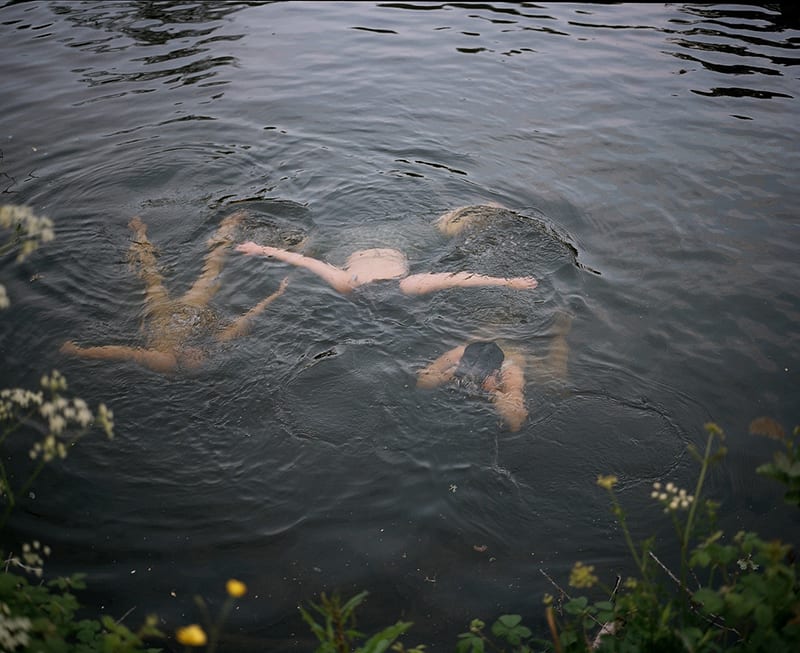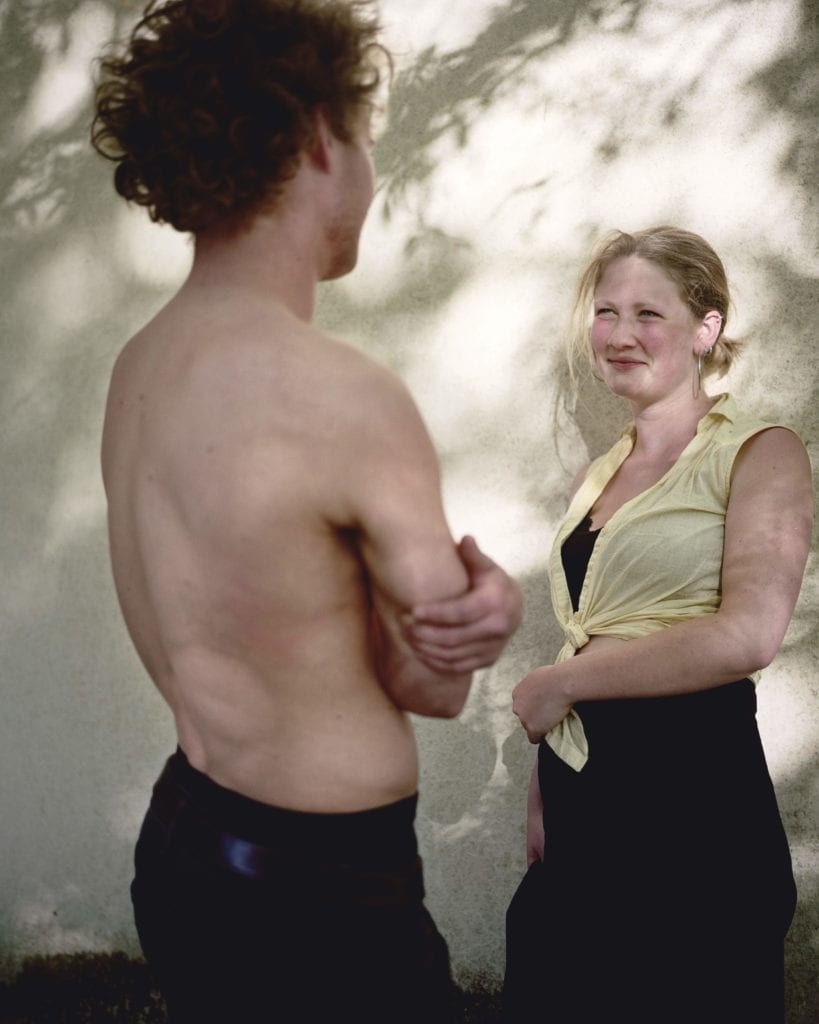“My hope is to bring people into connection, into their heart,” says Siân Davey. “It’s a heart practice. With very real issues.” The photographer, known for her sensitive work documenting her own children, as well as tender reflections on the intimate relationships amongst families and groups of young people, has been selected for the Wellcome Photography Prize commission. Over the coming months, she will be producing a new body of work around the theme of mental health. This new project, entitled Testament, will focus specifically on the relationship between poverty and mental health, documenting the lives of individuals living in Torquay, Devon, and struggling with precarious living conditions and all the associated psychological states this produces.
“How is it to be poor and struggling with mental health? And how do we manage that? What informs that?” asks Davey whose work will seek to address these questions by examining the emotional experience of lives predicated by uncertainty, and the toll taken by unstable living circumstances. The initial weeks of the commission have seen the photographer undertaking thorough research, spending time at food banks, and meeting with local community members, building up a comprehensive understanding of a situation which, by all accounts, is critical.
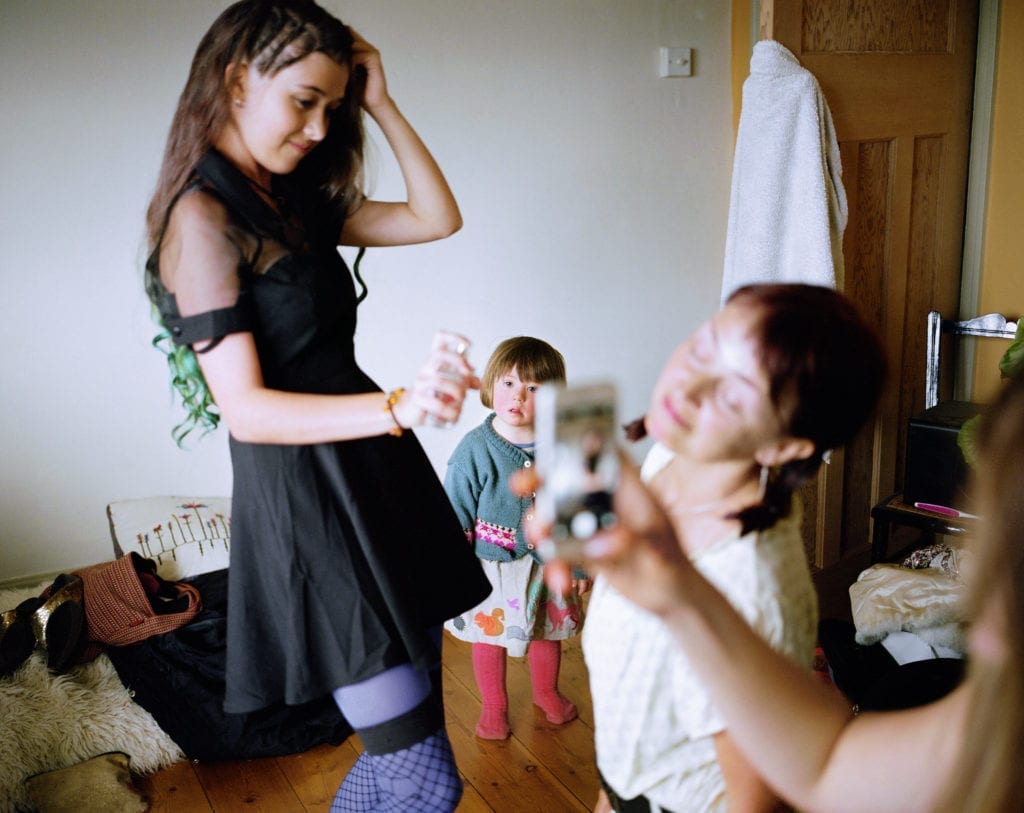
“The selling of the council houses, the selling of social housing, and the boom in property prices means that people are living in fear,” says Davey. “That constant fear and uncertainty means that people are fearing losing their homes. ‘Do I keep the house, or do I buy us food for the weekend?’: these are conversations that are going on all the time.” In fact, Davey explains that a significant aspect of the project will be to draw out the extent to which mental health conditions such as depression and anxiety are a natural response to this persistent fear and housing insecurity. These responses, in fact, are normal given the conditions that many are faced with. “We would all feel that,” she says.
The research stage is essential in laying the groundwork for a project that is emotionally anchored, and meaningful beyond straightforward observation. This is similar to how Davey approached her project about her youngest daughter, Looking for Alice. “I really built up the internal narrative of the project, and really defined what it was for me, what my motivation for the project was, what my ambitions were; and then once I had that, I stopped thinking,” Davey explains. “I stopped reading, and I stopped asking questions, and I shot the project and it just came together.”
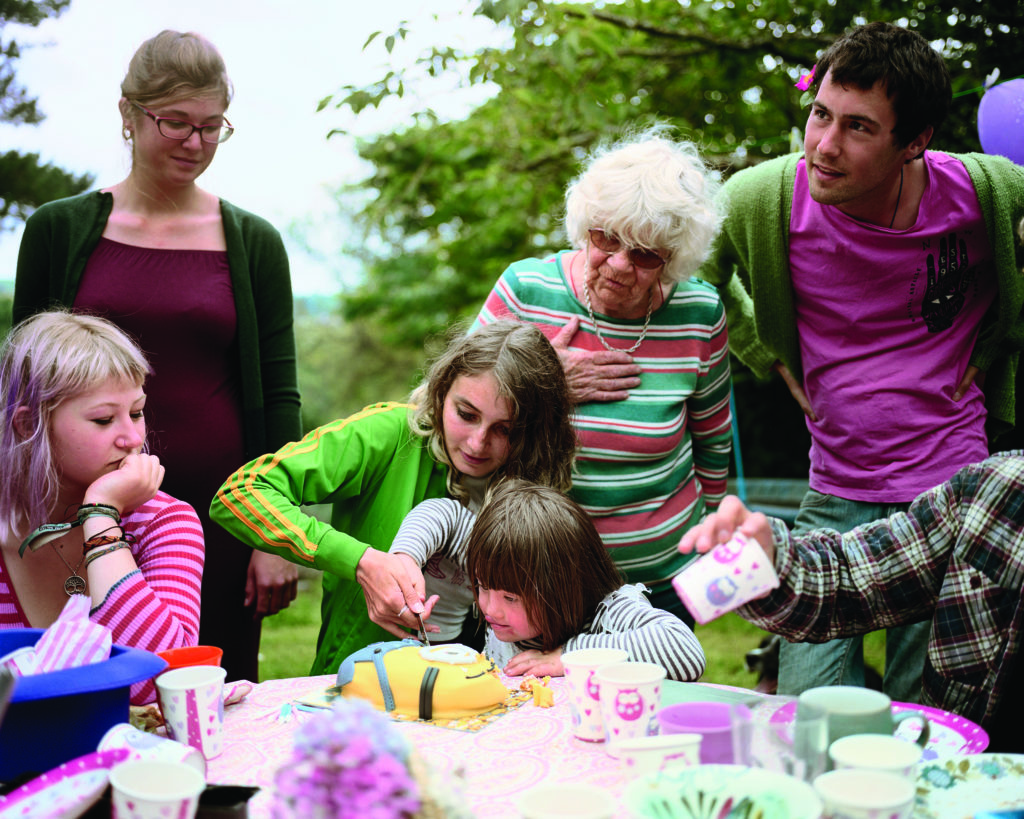
The work had been so thoroughly understood before shooting began that, when it came time to take the pictures, their resonance was innate, and not something that Davey had to orchestrate or contrive. “I think this [Wellcome commission] is exactly the same,” says Davey. Her research has involved spending significant time building relationships with her subjects, coming to know them personally and understand the issues they face on an emotional level. “They have to really be able to trust me,” she explains. “I’ve got to work with them until I feel like I’m not pointing the camera at them; that we’re sitting next to each other in the same space.” This relationship-building draws on her 15 years of experience working as a psychotherapist, and an ability to establish compassionate intimacy in a comparatively short space of time. “I’ll never really understand the whole experience of it. But I do want to be able to feel as much as I possibly can.”
The project is deeply informed by Davey’s background, both her professional psychotherapeutic experience, and a childhood experience of homelessness, having lived in temporary accommodation until the age of 13. “It’s always going to be an aspect of me,” Davey describes of her upbringing, “which is why I’m very interested in social issues. It’s very hard to watch the world as it is and not act on it.” The photographer lived through an experience of social marginalisation that had a profound emotional impact, both at the time and for long afterwards, and eventually manifested as post-traumatic stress. “All of our histories sit very close to us, and the sense of injustice that I experienced as a child is now right next to me as an adult,” she says. This sense has contributed to her plans for Testament, this exploration of mental health in the context of poverty for the Wellcome commission. “It’s made me really understand the world from a very different place. I don’t see myself as separate. And I feel like I have a very strong sense of social responsibility because of it,” she says. “It’s a very emotionally informed project.”
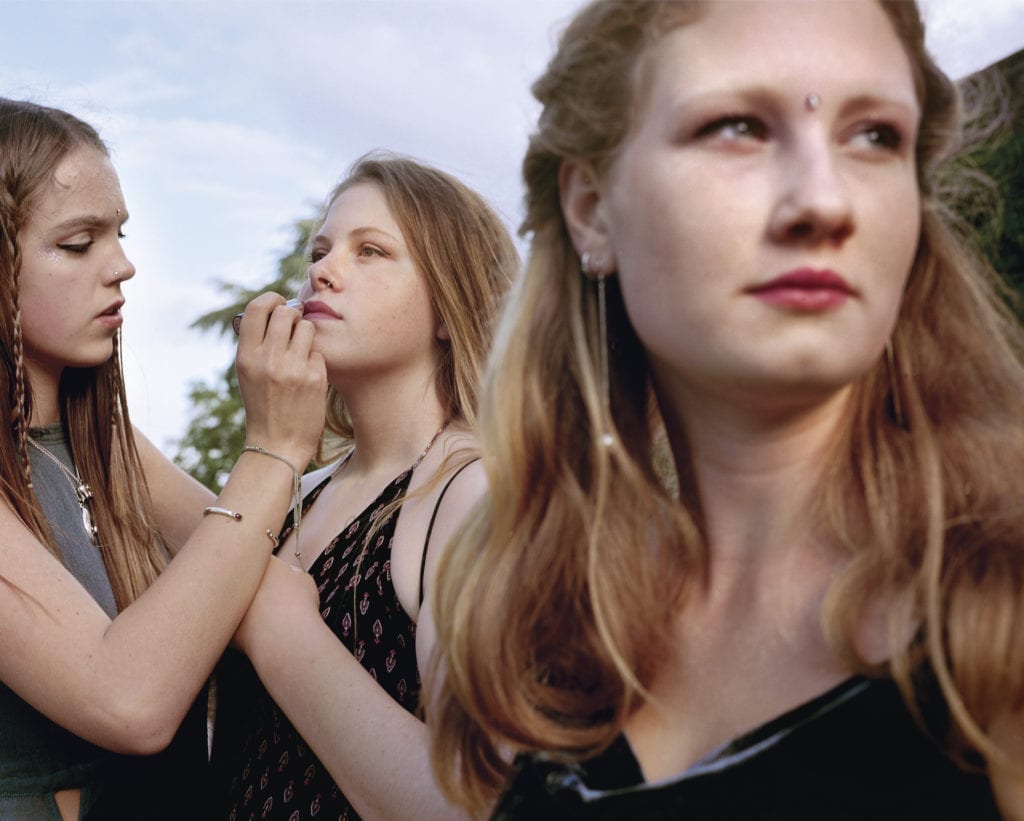
This emotional background, combined with her psychotherapeutic work, has resulted in a fierce commitment to an empathetic, as opposed to sympathetic, approach. “I think that’s how my work really helps me: as a depth of understanding. My background as a psychotherapist, and also my history, it’s all in there.” The images have to be deeply rooted, even if they’re easily intelligible at the surface; they should spark a deep recognition in the viewer, one that resonates beyond the visual. “When I look at images of Alice, they’re not complicated. They’re very simple,” she says. “But it’s what’s behind it that’s complex, and I think that’s what people are experiencing: the person who’s taking the picture, my history.”
Ultimately, Davey hopes that Testament will encourage this same empathy in the viewer. “This story is also about social responsibility and accountability,” she says. “If we don’t take care of people then they will inevitably feel uncared for, feel invisible; and then we have the erosion of self.” This erosion, in a society that feels increasingly divided, is one of the defining factors that results in mental health issues, and is something that every viewer can begin to take responsibility for by prioritising an attitude of care. “I would love people to want to be more of service to other people,” Davey says, “and actually, when we give freely, we feel really good.” The work will document the individuals experiencing hardship directly and in close proximity, and will result in insights that only trusting, intimate photography would be able to reveal. “That’s what I want to communicate: not to turn away anymore,” the photographer describes. “Everything’s about reconnection.”
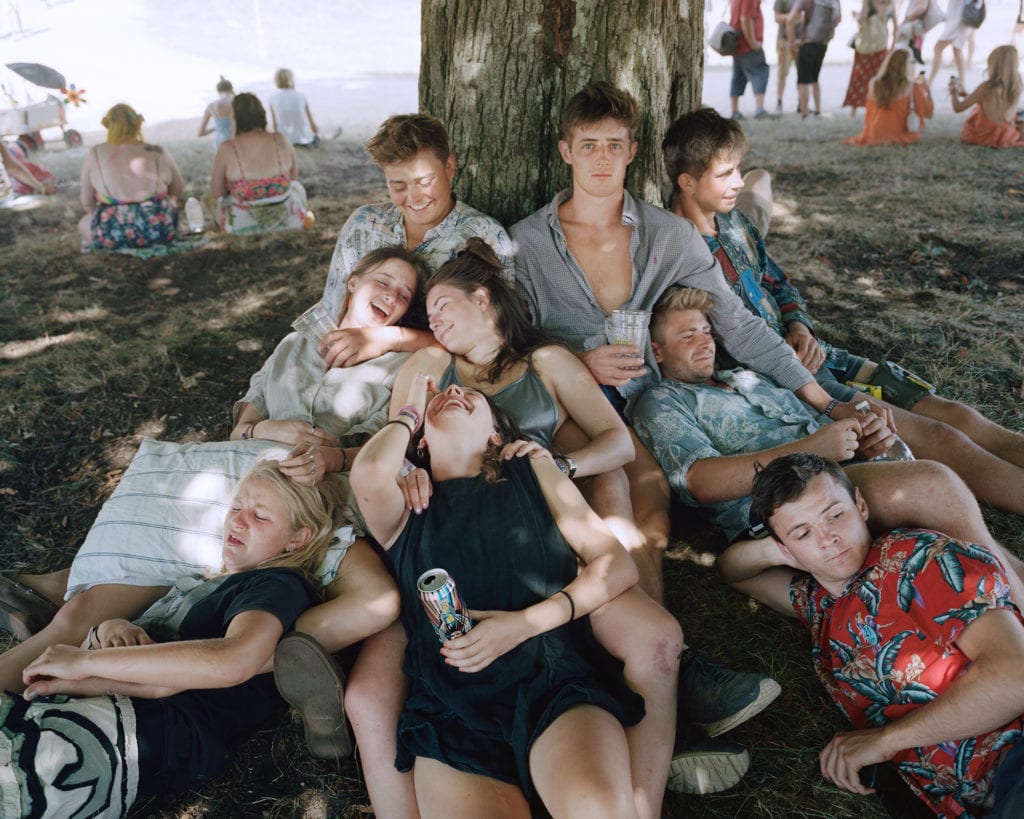
One of the categories in this year’s Wellcome Photography Prize, currently calling for entries, is Mental Health. The open call is inviting projects like Davey’s commission that will counter visual clichés and stigmas associated with mental health conditions and, of course, handle these topics with the requisite sensitivity and care. “I think it really depends on the person’s understanding of the territory; otherwise we just feel like observers,” says Davey. A successful project about mental health should be approached with respect and thorough understanding, and a good image on the subject is no different.
“It connects us to feelings and sensations, so we really get how it is to be another, how it is to be that person in the image,” says Davey. “It also invites us to reflect on who we are as the observer. It makes us ask questions, and makes us want to reconnect with ourselves, makes us want to perhaps act differently in the world that we’re in.” Davey’s approach to her own work is grounded in this meticulously empathetic practice, her camera not dividing her from her subjects, but uniting them in an exchange. “I’m just with them, and alongside them, in the way that I want the public to be alongside them, and for all of us to be alongside each other,” she says. “That’s my ambition. It’s a big ambition.”
The Wellcome Photography Prize is calling for work that will shed light on, and raise awareness about, stories of health, medicine and science. Each category winner will receive £1,250 and be featured in a London exhibition; the overall winner will receive £15,000. Entry is free and the deadline for submissions is 11:59pm GMT 16 December 2019. Please click here for more information about collaborating with Studio 1854.
